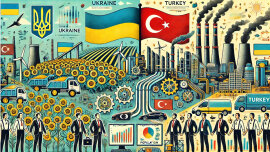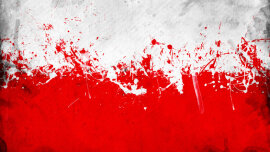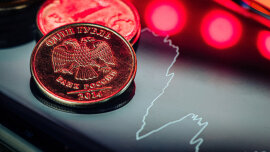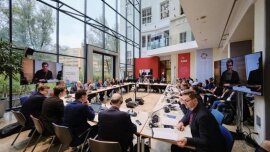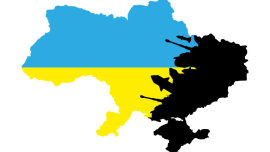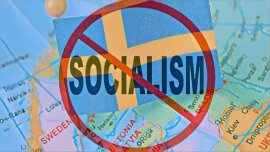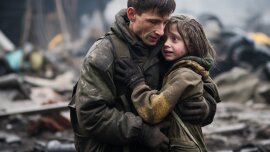In a detailed, 90-minute conversation with Yuri Romanenko, economist Oleg Ustenko conducted a detailed analysis of the state of the Russian economy, dispelling illusions about the enemy's imminent collapse and warning against the dangers of simplistic optimism. The conversation took place against the backdrop of the collapse of Russian envoy Dmitriev's negotiations with the American elite and the imposition of new sanctions against Lukoil and Rosneft.
Three time horizons of the Russian crisis
Ustenko proposed dividing the analysis into three time periods. In the long term (two years and beyond), Russia is "in very bad shape." The country remains a resource-based economy, and all talk of import substitution is a sham. The story of Prime Minister Mishustin is telling: in early 2025, while meeting with young scientists in Novosibirsk, he promised breakthrough import substitution, first within a year, then within three years, and then settled on "a maximum of five years"—demonstrating the government's complete confusion.
The fundamental problem is isolation from the global research and development market and the inability to purchase machinery and equipment for the extractive industries. The first sanctions packages cut Russia off from military-industrial equipment, then from related sectors, and finally from all resource industries. Theoretically, they can only exploit what they currently have. Trust in Russia has been undermined internationally for decades. Europe no longer relies on the Russian energy sector; investment will not come, and local capital will seek ways to exit the country.
Short-Term Resilience: A Disturbing Reality
However, in the short term (from zero to 12-24 months), the situation is radically different. Ustenko categorically warns: "It's colossal to think, especially for us as Ukraine, that the Russian economy will collapse tomorrow. We shouldn't present our wishes as a realistic scenario."
An analysis of the Russian budget reveals three major expenditure categories. The military-industrial complex—officially $150 billion in 2025, $160 billion next year, plus hidden funding, bringing the actual budget to around $200 billion. By comparison, Ukraine's entire security and defense sector is $60 billion. Ustenko emphasizes the difference in scale, although he notes that Russia doesn't spend its entire budget on Ukraine—it has several fleets, nuclear forces, and military units in the north for potential provocations against the Baltic states.
Oil Sanctions: A Blow, But Not a Knockout
In a detailed analysis of the sanctions' impact on the oil sector, Ustenko explains the mechanism of pressure on Russia. India has begun to negotiate and reduce its purchases of Russian oil. The British and French are all looking for ways to minimize the costs of breaking away from the Russian market, but the process is ongoing. China is holding off on buying seaborne oil until Trump's meeting with Xi Jinping. The Russians have begun selling at an even greater discount. In a week, the price of Brent crude rose from $60 to $65 per barrel—without causing any turmoil on the global market.
The Europeans have adopted the 19th sanctions package, but are traditionally taking a "half-step" approach, postponing the phase-out of liquefied natural gas until the end of 2026, and only for short-term contracts, of which there are almost none. The loss of the Indian market means a loss of $30-50 billion for Russia. But where will the Kremlin cut costs?
The logic of survival of a totalitarian regime
Ustenko is confident: they won't join either the military-industrial complex or the repressive apparatus. Social spending will bear the brunt. Some payments will be cut, others will be postponed until the end of 2026, with promises to "wait, good people, until the situation stabilizes a bit." Some expenses will be declared "stupid expenditures" and simply cancelled. They will buy time "by hook or by crook, more by crook than by fair means."
The repressive apparatus will not only be preserved, but may be strengthened. The Kremlin lacks confidence in society, despite VTsIOM polls showing that 69-70% of Russians support the war. Ustenko doubts these figures—in a totalitarian country, when asked about the war on the phone, people answer the question based on what's expected "on the other end of the line," not what they actually think. If protests break out in St. Petersburg and Moscow, rather than Volgograd or Omsk, the repressive apparatus must be ready. "The whip must fly with much greater frequency."
Stagflation and growing aggression
Russia's macroeconomic indicators are catastrophic: inflation is 6-8%, the Central Bank's key rate is 17%, technical recession (growth of 0.4% in the second quarter of 2025, the IMF has lowered its forecast to 0.6% per annum), and budget revenues are falling. Classic stagflation—stagnation plus high inflation. Growth is concentrated only in the military-industrial complex; all other sectors are either flat or negative.
The Central Bank is trapped: it must raise the interest rate to combat inflation, but it can't do so under pressure from the Kremlin, as this would stifle economic growth. The current rate isn't keeping up with inflation, but it's already stifling growth. By winter, food prices will rise even higher.
Ustenko draws a parallel with Iran: sanctions were imposed in 1978, more than 40 years have passed, but the population's standard of living is still lower than it was in 1977. "No problem, they're living their lives, it's lousy, but they're living." Such a future could await Russia.
Critical Forecast: Explosion of Aggression
Ustenko's most alarming conclusion: in the short term, the level of Russian aggression will increase by an order of magnitude, if not a fraction. The Kremlin understands that in the long term, they are doomed. They see a "hill" ahead that they will have to slide down. In their view, the only way to avoid a catastrophe in two years is now, in the short term. "This means the regime is becoming more aggressive. They understand that the game is over. They are trying to change history in this short term."
"The cockroaches that live in the Kremlin's heads are starting to run at a much faster speed than in 2022 or 2023." This is the most difficult period—an outbreak of psychopathic aggression from a cornered aggressor. Even Russian media are bracing for possible negative information from the meeting with Trump, without raising positive expectations.
Geopolitical Context: Ukraine as a Catalyst
Ustenko and Romanenko discuss geopolitical architecture, where the US and China are "two dinosaurs" with economies of $30 and $20 trillion. Europe, with its $20 trillion GDP, risks becoming hostage to their deals. Ukraine is a thorn in the side of all players: Europe, Russia, the US, and China.
In Europe, a struggle is raging between the pro-Russian lobby (Orbán, Babiš, and the rising right) and the anti-Russian line (Merz in Germany calls Russia an enemy). Ustenko notes that the mainstream elite supports the hard line. Europeans face a choice: either submit to Trump, or to Putin, or become subjective.
To bring Ukraine's military budget up to par with Russia's, Europe needs 100 billion—that's just half a percent of their GDP. "If they see us as an outpost in the East, then it's an investment." But the reparations loan keeps getting delayed.
Conclusion: Cold Realism
Ustenko concludes the conversation with a call for sobriety: "Expecting Russia to collapse tomorrow or the day after simply because things are going the way we'd like is the wrong way. I hope our military understands this, because the idea that they'll simply slide into the abyss and everything will be resolved easily—no. That's not the case."
In the short term, Russia is resilient and will remain as aggressive as possible. The challenge for Ukraine is to survive this most dangerous period of aggression, a cornered beast. Then, in two years, when the ice beneath the Kremlin begins to crumble, the situation may ease. But right now is the most challenging moment, for which we must prepare without rose-colored glasses or political incantations about a quick victory.
















